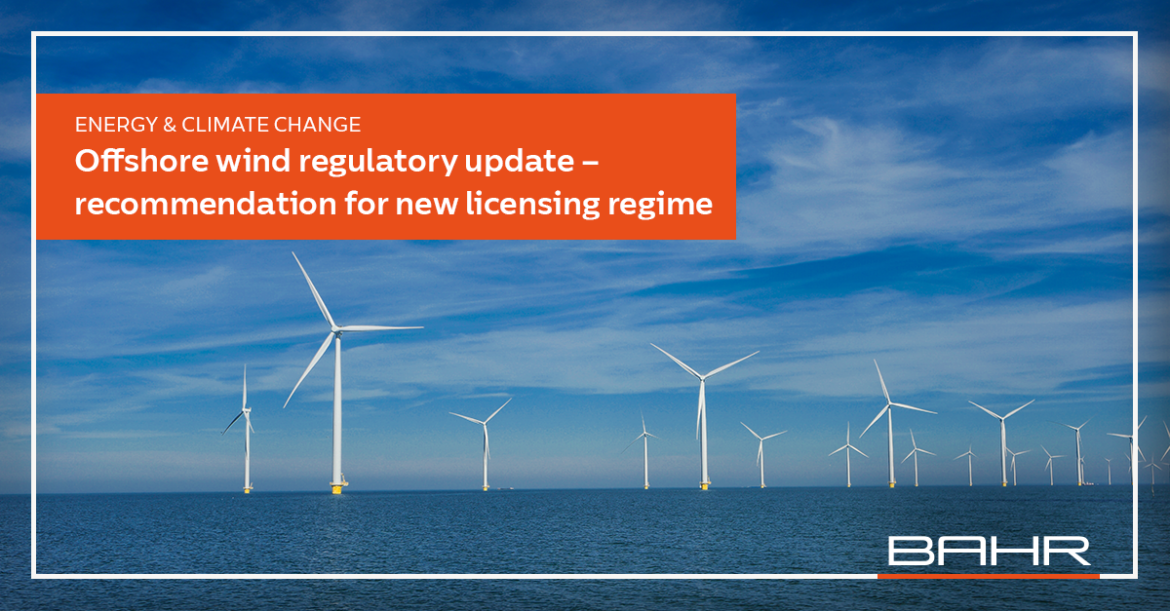Offshore wind regulatory update – recommendation for new licensing regime

The present Government has expressed an ambition to award acreage for 30GW offshore wind by 2040. To realize the Government’s ambitions, large scale development of offshore wind and onshore grid is required. Against this backdrop, the NVE has proposed a new regulatory framework for offshore wind which is intended to:
- Secure that important decisions are made based on an adequate basis at the right time,
- Secure efficient award processes safeguarding public interests, and
- Increase the predictability for developers.
The NVE has not consulted the offshore wind industry before presenting its recommendations but suggests that the industry is consulted in the further processing of the recommendations.
The recommendations will require changes to the Offshore Energy Act and relevant regulations, which will require due process and take time. The recommendations are relevant for future offshore wind licensing rounds and is not intended to amend the legislative framework for the on-going award processes for Sørlige Nordsjø II and Utsira Nord.
NVE’s proposed simplification of the regulatory framework
Below we highlight some of the most important recommendations:
- Combining area award with concession award: A key element is that the NVE recommends combining the award of exclusive project areas and concession. This is a substantial change from the current regime and implies that the developers are awarded firm development rights together with project area rights. This is much earlier in the process than under the current regime. If this change is implemented, it would increase predictability for developers and make the award process more efficient.
- Impact assessment program determined before concession award: In contrast with the current regime, where the developer within 6 weeks from exclusivity award has to submit a proposal for a project specific impact assessment program, the NVE proposes that the authorities (NVE) shall determine the general impact assessment program before award of concession. The intention is to over time develop a standardized impact assessment program. In conjunction with the subsequent preparation of the detailed development plan, it will be considered to what extent additional project specific impact assessments will be required.
- Key aspects on grid connection clarified before concession award: NVE proposes that all key aspects of the grid connection which impacts the profitability of the offshore wind project is clarified before concession award. These key aspects include grid connection point, the allocation of ownership and costs, the type of connection (a radial only to Norway mainland or a hybrid connector including other countries), the potential coordination of multiple grid connection points, the reservation of capacity, and the content of the impact assessments related to the grid infrastructure.
- Statnett to plan grid connection prior to concession award: NVE suggests that Statnett is the most suitable entity to plan, evaluate the grid concept, and develop the grid connection concept up to the concession award. Statnett should, as a minimum be responsible for developing the grid connection concept and preparing a statement that includes recommendations for an impact assessment program.

Illustration of contemplated licensing process (production and transmission asset)
Summary
NVEs recommendations provide a starting point for further development of a more efficient and robust regulatory framework for offshore wind. The proposed changes are intended to increase efficiency and predictability, whilst ensuring that the process is democratic and that decisions are made based on sufficient knowledge. Today’s regulatory regime for offshore wind include a lengthy regulatory process which does not correspond with the need for increased power supply to meet Norwegian climate targets. NVE’s proposal is a first step towards addressing some of these concerns and will be important input to further improve the regulatory framework for offshore wind.
